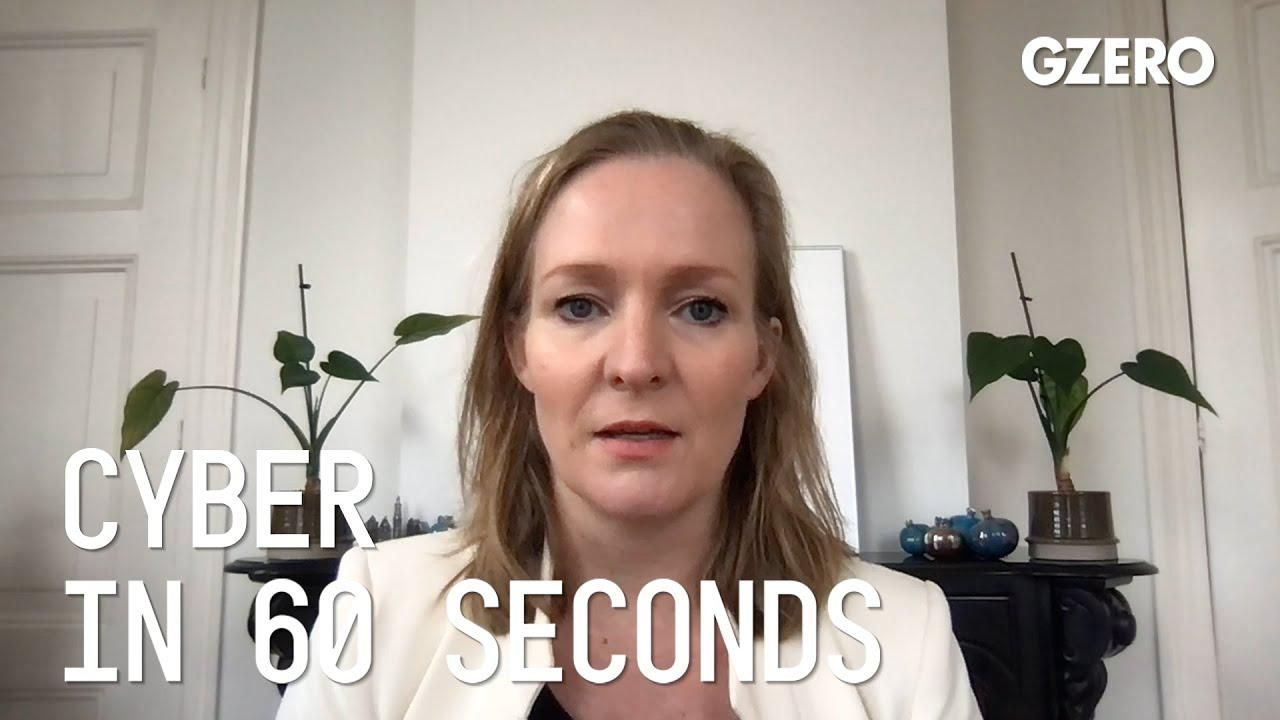Cyber in 60 Seconds
Cyber warfare & disinformation play key role in Russia Ukraine conflict

Cyberwar in Ukraine: Part of Putin's Escalation & Geopolitical Agenda | Cyber In :60 | GZERO Media

Marietje Schaake, International Policy Director at Stanford's Cyber Policy Center, Eurasia Group senior advisor and former MEP, discusses the Ukraine conflict from the cybersecurity perspective:
These are dark and bitter times. We've just seen Russia starting a completely unjustifiable war with disproportionate force against Ukraine and these acts of aggression that we see, threats on the foundations of a rules based order and of our own freedoms in democracies worldwide. Yes, to all this aggression, there is also a cyber dimension.
Cyber warfare is clearly a major part of the Russia Ukraine conflict, but cyber weapons are notoriously hard to control.
What is the risk that hackers at war in Eastern Europe could wind up, intentionally or not, wreaking havoc in the West or beyond?
Now in terms of the deployment of tools to attack digital infrastructure and systems, going with what we have seen so far, attacks on Ukraine have already wreaked havoc on the West. Whether it was the NotPetya attack or attempts to manipulate the US presidential election, old KGB tactics are an integral tool in Putin's toolbox. So we shouldn't think of cyberwar as something separate or detached from the broader conflict confrontation, escalation and geopolitical agenda. And there is also this disinformation element woven through all aspects of the confrontation coming from Russia. Not to forget that in Europe today, as well as in the United States, Vladimir Putin has allies in political office. So sometimes I wonder with friends like these, who needs enemies?
Europe can no longer rely on the US and must step up to defend its own future, Ian Bremmer reports from the Munich Security Conference.
Think you know what's going on around the world? Here's your chance to prove it.
A poster featuring Andrew Mountbatten-Windsor, formerly known as Prince Andrew, is installed on a sign leading to the parking area of the Sandringham Estate in Wolferton, as pressure builds on him to give evidence after the U.S. Justice Department released more records tied to the late financier and convicted sex offender Jeffrey Epstein, in Norfolk, Britain, February 5, 2026.
British police arrested former Prince Andrew Mountbatten-Windsor today over allegations that in 2010, when he was a UK trade envoy, he shared confidential government documents with convicted sex offender Jeffrey Epstein.